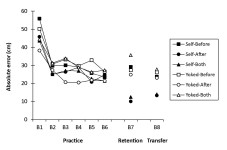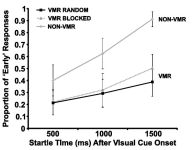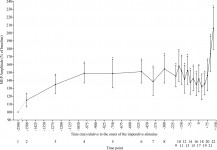 This month Dr. Tony Carlsen was promoted to Associate Professor status with tenure.
This month Dr. Tony Carlsen was promoted to Associate Professor status with tenure.
Congratulations, Tony!

PDF This study looked at whether giving learners control over if (and when) they received feedback affected learning of a new task. The main finding is that learners who were able to choose to receive feedback after a trial performed better in retention and transfer. This suggests that the decision to…

PDF Seminal work by Georgopoulos and colleagues (1987) showed that reaction time (RT) increased when a rotational mental transformation had to be calculated prior to responding. A loud acoustic stimulus can be used to trigger prepared responses, so this effect was used in the current experiment to determine how preparatory activation levels in…

PDF This study investigated the entirety of the timecourse of cortico-spinal excitability changes during a reaction time task – from the time in between trials, and throughout the foreperiod and response interval. The results show a pattern of increase in excitability that occurs just after the “get ready” signal which…